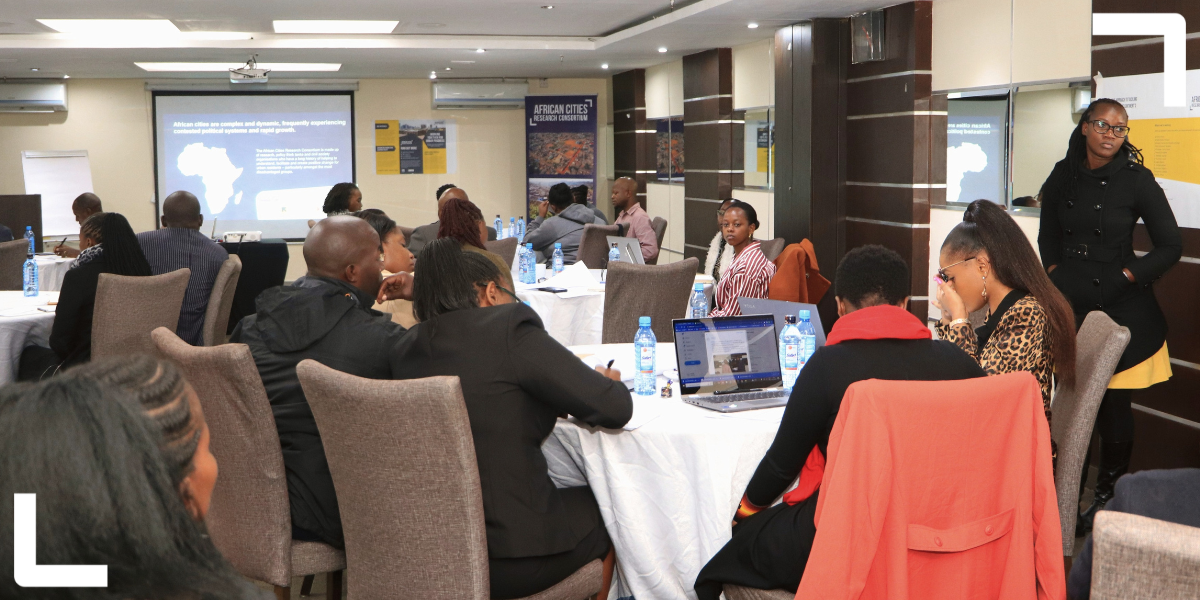By Charity Mumbi, projects officer at SDI-Kenya
African Cities Research Consortium (ACRC) research aims to unravel the complex challenges that impede urban development. It recognises that there are different actors and political interplay that influence the shape of urban development. These agencies may enable or suppress the speed and form of urban reforms. On 2 November 2022 a workshop brought together a variety of actors to review progress of ACRC research in Nairobi.
The Nairobi research teams have actively adopted a co-production research mode, and are identifying the Nairobi’s priority complex problems (PCPs) that encumber its economic development. Through the involvement of the uptake team, the research has created a pool of actors, including local communities, county technocrats, county political agencies, civil society organisations, private institutions, professional bodies, academia, bilateral and multilateral agencies, and individual researchers – all with an expressed interest of driving urban reforms in their various areas of specialty.
The uptake team is keen to bring all these players together, as it is aware that the city operates as a system. A multidisciplinary co-creation approach is therefore needed to achieve coordinated city programming, policy influence and gradual urban transformation.
Why the workshop?
This purpose of the workshop was to review research in the domains of housing and safety and security, and to help define the identified PCPs per domain. The workshop aimed to:
- Increase partnerships and stakeholders’ commitment to supporting the research.
- Align research and PCPs to the new county/city priorities, including integrating the research into the County Integrated Development Plan (CIDP) for 2022– 2027.
- Co-identify areas of programmes positioning informed by the research.
- Identify policy alignments, policy gaps and how to fill these gaps. For instance, it was identified that Nairobi lacks a renter market policy, and that social and affordable houses are constructed with an ownership orientation. The uptake requirement here is to collaborate with the county housing department in the existing housing policy review, to ensure inclusion of the renter markets. This reviewed policy will then be approved by the county assembly.
There were two further positive outcomes of the workshop:
- There is immense goodwill for different actors, including government, political and technocrat bodies, to take up the research and identify actionable programmes for implementation.
- Stakeholders were keen to co-develop an implementation matrix for the overall Nairobi research, to ensure that research is actioned, through strategic implementation. So the next uptake meeting will create sessions for the matrix development and prioritisation of actions.
Download the report below for a more in-depth summary of the discussions and outcomes from the workshop.
Note: This article presents the views of the author featured and does not necessarily represent the views of the African Cities Research Consortium as a whole.
The African Cities blog is licensed under Creative Commons Attribution-NonCommercial-NoDerivatives 4.0 International (CC BY-NC-ND 4.0), which means you are welcome to repost this content as long as you provide full credit and a link to this original post.
Header photo credit: Isaack Wambua and Janet Wairimu (Know Your City TV Kenya)


